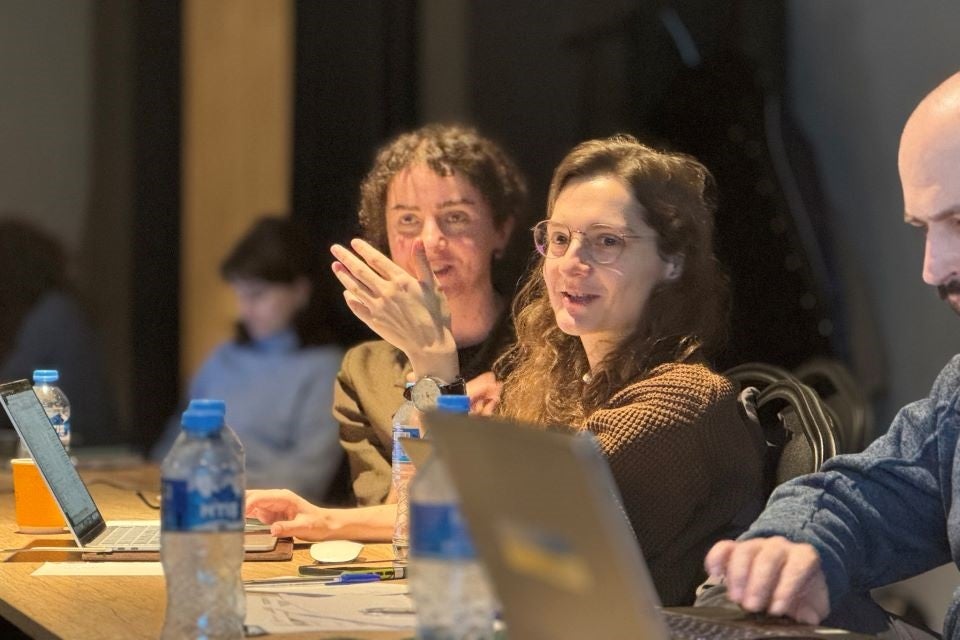Young researchers to work on time use data
Date:

Gender statistics and the collection of comprehensive and quality data to support gender equality decisions represent a global challenge. Georgia is no exception, which is why UN Women is implementing various initiatives to improve gender statistics in the country.
To promote gender data, its analysis and its use in policy planning, UN Women and CRRC-Georgia conducted a training for young researchers from 19 to 21 March 2025.
More than 20 participants attended the training. Among them were active researchers, representatives from academia and civil society organizations, and master’s and PhD students from various faculties who are interested in gender statistics.
The main goal of the training was to teach the process of time use data analysis and support research initiatives on gender equality using these data. During the training, participants analysed the data collected from the Georgia Time Use Survey conducted by UN Women and the National Statistics Office of Georgia (Geostat) in 2020–2021. The following topics were discussed: time spent by the population of Georgia on unpaid care work, paid work and leisure or entertainment, as well as the gender differences in this regard.
Psychologist Mariam Kvitsiani is involved in research work at Ivane Javakhishvili Tbilisi State University (TSU). Having completed the training, she is going to apply the knowledge she has obtained to its fullest extent, noting: “It is important to take any opportunity that can equip you with the competence needed to conduct research at an international level. After acquiring this knowledge and skills, I can now create a specific product of interest to me, which will then help in developing policy documents and planning specific data-based steps.”
Natia Sordia, her colleague and Assistant Professor at TSU, adds that the Georgia Time Use Survey opened up new perspectives for her as a researcher: “I am currently involved in research on gender differences in creative achievements. I am looking at why men have more success in creative fields compared to women, when they possess equal potential. I think it would be very interesting to analyse this issue through the lens of the unequal distribution of unpaid care work. This will add a completely new perspective to my research.”
Notably, several participants selected after the training will receive small grants to work on research papers based on the data from the Georgia Time Use Survey. UN Women will continue to offer trainings on gender data.
The training was held within the framework of the project “Women’s Increased Leadership for Democracy in Georgia” (WILD), implemented with the generous financial support of the Swiss Agency for Development and Cooperation (SDC) and UN Women’s global flagship programme Making Every Woman and Girl Count.